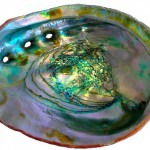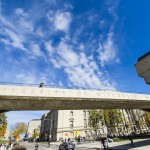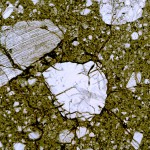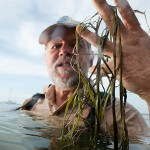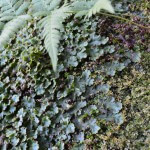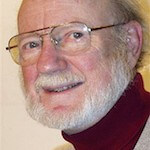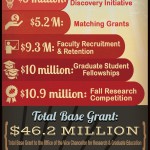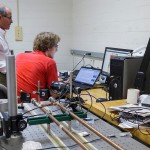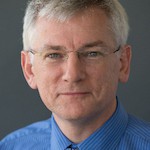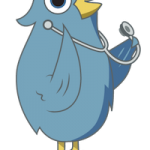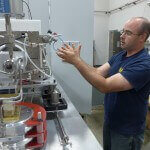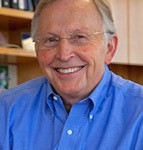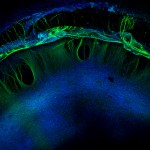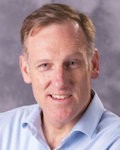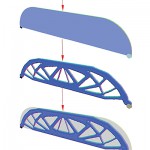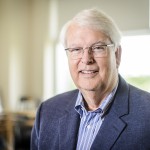Tag Research
Mother-of-pearl’s genesis identified in mineral’s transformation
How nature makes its biominerals - things like teeth, bone and seashells - is a playbook scientists have long been trying to read. Read More
Study questions dates for cataclysms on early moon, Earth
Phenomenally durable crystals called zircons are used to date some of the earliest and most dramatic cataclysms of the solar system. One is the super-duty collision that ejected material from Earth to form the moon roughly 50 million years after Earth formed. Another is the late heavy bombardment, a wave of impacts that may have created hellish surface conditions on the young Earth, about 4 billion years ago. Read More
WARF Innovation Award winners take on colon cancer detection, tomorrow’s plastic
A blood test that could save lives and a sun-powered scheme to turn biomass into valuable compounds have won Innovation Awards from the Wisconsin Alumni Research Foundation (WARF). Read More
Boundless Together, Part 2
A new commercial for UW–Madison will premiere this weekend during the Badger football game. Learn more about the people and projects highlighted in the spot. Read More
Embrace the chaos: Predictable ecosystems may be more fragile
A new study published in the Proceedings of the National Academy of Sciences says managing our environment for predictable outcomes is risky. In fact, more often than not, it backfires. Read More
WARF draws top inventors, entrepreneurs for fall discussion series
To cap its 90th anniversary celebration, the Wisconsin Alumni Research Foundation (WARF) is hosting a four-part discussion series exploring the cycle of innovation. Read More
Ancestors of land plants were wired to make the leap to shore
When the algal ancestor of modern land plants made the transition from aquatic environments to an inhospitable shore 450 million years ago, it changed the world by dramatically altering climate and setting the stage for the vast array of terrestrial life. Read More
Nobel Recipient Campbell Earned Master’s, Doctorate at UW–Madison
William C. Campbell, a master's and doctoral graduate of the University of Wisconsin–Madison, was awarded a share of the 2015 Nobel Prize in Physiology or Medicine, it was announced today. Read More
‘Garage Physics’ is a makerspace for undergraduate brainstorms
To physics professor Duncan Carlsmith, a student's proposal to make a four-rotor helicopter drone was fine fodder for what he calls "garage physics." But why stop at a quadcopter, he told the University of Wisconsin–Madison undergraduate. Make one that is mind-controlled, so a person with severe movement impairment could think: "Go open the fridge and show me what's inside," and that would actually happen. Read More
Designed defects in liquid crystals can guide construction of nanomaterials
Imperfections running through liquid crystals can be used as miniscule tubing, channeling molecules into specific positions to form new materials and nanoscale structures, according to engineers at the University of Wisconsin–Madison. The discovery could have applications in fields as diverse as electronics and medicine. Read More
Software piggybacks on electronic medical records, saves clinician time
Many people assume that electronic medical records would simplify doctoring, helping medical staff retrieve symptoms, diagnoses and prescriptions at computer speed. But Jonathan Baran, a Madison entrepreneur who began developing medical automation software while a graduate student at the University of Wisconsin–Madison, says providers often don't see the promised efficiencies. Read More
UW-Madison to legislators: Don’t ban important fetal tissue research
Proposed legislation in Wisconsin will have a devastating impact on the ability of researchers to create lifesaving treatments for patients, Robert Golden, dean of the University of Wisconsin–Madison School of Medicine and Public Health, told members of a Wisconsin Senate committee in a public hearing Tuesday, Sept. 22. Read More
Heavy-duty neutron accelerators paint promising future for UW–Madison spinoff
A Madison manufacturer of the world's most powerful commercial neutron generators is awaiting final regulatory approval for its first sale outside the research market. The device will be used to calibrate safety detectors at nuclear reactors in the United Kingdom. Read More
WARF board speaks out on proposed fetal tissue ban
The Board of Trustees of the Wisconsin Alumni Research Foundation (WARF) today announced unanimous opposition to a state legislative proposal to ban the use of fetal tissue in scientific research. Read More
Stem cell-derived ‘organoids’ help predict neural toxicity
A new system developed by scientists at the Morgridge Institute for Research and the University of Wisconsin–Madison may provide a faster, cheaper and more biologically relevant way to screen drugs and chemicals that could harm the developing brain. Read More
Souped-up software reduces guesswork, tedium in computer-aided engineering
A team of University of Wisconsin–Madison engineers recently released a new computer-aided engineering software program, and its users are already calling it a "gift from heaven." Read More
Weather-tech jobs remain in Madison even after company is sold
His demo tape as a TV weatherman was adjudged "pretty awful," yet it got University of Wisconsin–Madison grad Terry Kelly started "doing the weather" on WKOW Channel 27 in Madison in 1974. To improve on the paper drawings he was using to show storms and fronts, Kelly started Weather Central and built it into America's premier computer weather graphics and weather modeling business. Read More

